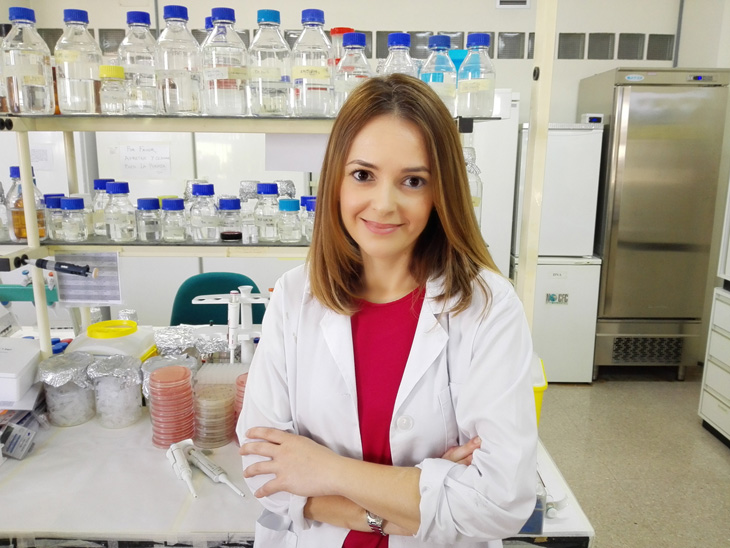Tabla de Contenidos
Biography
Scientific career of more than 20 years focused on intracellular signalling mechanisms in response to stress in eukaryotes. Member of the Yeast Physiology Group since 2003. PhD with a European degree and postdoctoral stays abroad for 40 months. Dr Madrid's scientific production includes 40 articles in “Journal Citation Reports”, with publications in high-impact journals such as Autophagy, Current Biology, mBio, PLoS Genetics, eLife, Scientific Reports, etc. 4 other publications in the form of book chapters. Participation in 14 scientific projects. Two research contracts obtained in public competitive calls: “Juan de la Cierva” (Ministry of Science, Spain) and “EMBO Postdoctoral Fellowships” (European Molecular Biology Organization). Four grants obtained in public competitive calls, and 55 contributions in scientific congresses covering all their modalities (organization, invited oral communication, oral communication by selection and poster). University Professor since 2024. Director of 5 defended doctoral theses and 1 in progress, 14 Master's theses and 40 Bachelor's theses. Reviewer of research articles in prestigious journals (Nature Communications, PLoS Biology, PLoS Genetics, mBio, etc.) and in national and European agencies.
Since 2017, she co-leads, together with José Cansado, the development of a research line dedicated to investigating the biological significance of environmental regulation of cytokinesis and autophagy through various intracellular signaling pathways in Schizosaccharomyces yeasts (eLife 9:e57951; Autophagy 26:1-21; eLife 12:e83285; iScience 26(9):107611).
Research interests
Cancer is a disease of uncontrolled cell proliferation and because cancer cells inappropriately colonise parts of the body, they are in the wrong context and are invariably more stressed than normal tissues. Therefore changes in stress response signalling are linked to cancer and are often altered in human tumours. In eukaryote cells the signal transduction pathways involving MAP kinases are key players in the regulation of cell adaptation and survival under sub-optimal growth conditions and consequently they are highly evolutionary conserved. This conservation allow us to use fission yeast Schizosaccharomyces pombe in order to decipher the complexity of MAPK signaling under adverse physiological conditions with a very simple model organism with powerful genetics and cellular biology.
Our main research interest focus on characterising the means by which external cues induce the activation of MAPK signaling pathways precisely in time and space, using a wide range of contemporary molecular cell biology, biochemical and bio-imaging techniques.
We are also interested in how intracellular signaling transduces cellular contextual information to the molecular machinery involved in the regulation of autophagy and cell division.
Autophagy
Macroautophagy/autophagy is a crucial physiological response in eukaryotes induced under stress conditions, such as nutrient starvation, in which various cellular components are degraded to basic macromolecules and returned to the cytoplasm for reuse. Deregulation of autophagy has been implicated in the development of several human pathologies, including cancer and neurological disorders. Therefore, a detailed understanding of how the autophagic process is specifically regulated in response to different stimuli is essential to develop therapeutic strategies to inhibit or induce autophagy, tailored according to the cellular context.
Understanding how cells divide is crucial in the fight against cancer. Cytokinesis, the final stage of cell division, is when a cell splits into two daughter cells. This process must be precise to ensure each new cell receives the correct genetic information. However, errors in cytokinesis can lead to cells with abnormal numbers of chromosomes or multiple cell centers, potentially leading to cancer. Therefore, cells have evolved complex systems that respond to environmental signals to control when and how division occurs. Researching these control mechanisms can provide vital insights into preventing and treating cancer by ensuring cell division occurs correctly and healthily.



